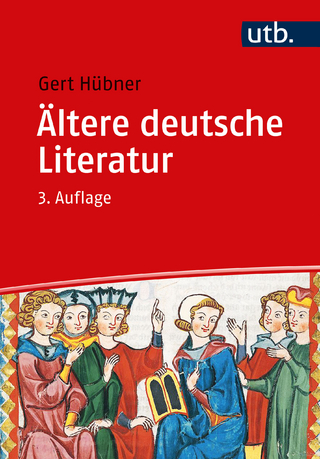
Nicholas of Cusa on the Trinitarian Structure of the Innate Criterion of Truth
Brill (Verlag)
978-90-04-41250-7 (ISBN)
In Nicholas of Cusa on the Trinitarian Structure of the Innate Criterion of Truth, Paula Pico Estrada offers an analysis of Nicholas of Cusa’s (1401–1464) unitrine conception of the human power of judgment, arguing that the innate criterion that guides human beings to their end is formed by a cognitive, an affective and a social dimension, and that it not only makes possible the systematization and evaluation of cognitive experience but also enables morality.
Based on a close reading of Cusanus’ philosophical treatises, the study deepens our understanding of Nicholas of Cusa’s epistemology, showing that his anthropological conception integrates philosophy and theology.
Paula Pico Estrada, Ph.D. (2016, University of Buenos Aires), is Professor of Medieval Philosophy at the Universidad del Salvador and at the Universidad Nacional de San Martín, both in Buenos Aires, Argentina. She has translated into Spanish Nicholas of Cusa’s De visione Dei, Compendium, and De Staticis Experimentis, as well as some of his letters to the Tegernsee monks, and has published more than twenty-five articles and book chapters on Cusanus’ anthropology. She coauthored Language, Logic and Ontology in Five Medieval Thinkers (Lenguaje, lógica y ontología en cinco pensadores medievales: Buenos Aires, Baudino Ediciones, 2011).
Acknowledgments
List of Abbreviations
Introduction
1 Previous Scholarship on Cusanus’ Conception of the Human Mind
2 Contents and Approach
1 The Metaphysical Foundations of Human Nature
1 The Apparent Lack of Completion of the Universe
2 The Cosmological Need for Perfect Humanity
3 The Perfection of the Universe
4 Summary
2 The Innate Power of Judgment as the Human Mind’s Guiding Principle
1 De concordantia catholica (1433)
2 De docta ignorantia (1440)
3 Idiota. De sapientia (1450)
4 Idiota. De mente (1450)
5 De pace fidei (1454)
6 De ludo globi (1462)
7 De venatione sapientiae (1463)
8 Summary
3 The Innate Knowledge of the Power of Judgment
1 Innatism in Idiota. de Mente
2 The Innatism of the Virtues
3 The Innate Power of Judgment and Intellectual Memory
4 Summary
4 Oneness: The Cognitive Dimension of the Innate Power of Judgment
1 The Limits of Human Knowledge
2 The Symbolic Procedure
3 The Mind as imago Dei
4 Triunity and Movement
5 To Know Is to Number
6 Number, Freedom, and Creativity
7 Summary
5 Equality: The Social Dimension of the Innate Power of Judgment
1 The Principle of Self-Preservation
2 Triunity and Justice
3 Body and Soul
4 Freedom
5 Summary
6 Love: The Affective Dimension of the Innate Power of Judgment
1 Affectus in Cusanus’ Writings Previous to 1452
2 The Debate over the Primacy of Intellectus or Affectus
3 Faith
4 Love
5 Summary
Conclusion
Bibliography
Index
| Erscheinungsdatum | 29.11.2021 |
|---|---|
| Reihe/Serie | Brill's Studies in Intellectual History ; 335 |
| Verlagsort | Leiden |
| Sprache | englisch |
| Maße | 155 x 235 mm |
| Gewicht | 547 g |
| Themenwelt | Geschichte ► Allgemeine Geschichte ► Mittelalter |
| Geschichte ► Allgemeine Geschichte ► Neuzeit (bis 1918) | |
| Geisteswissenschaften ► Philosophie ► Erkenntnistheorie / Wissenschaftstheorie | |
| Geisteswissenschaften ► Philosophie ► Ethik | |
| Geisteswissenschaften ► Philosophie ► Metaphysik / Ontologie | |
| Geisteswissenschaften ► Philosophie ► Philosophie des Mittelalters | |
| ISBN-10 | 90-04-41250-6 / 9004412506 |
| ISBN-13 | 978-90-04-41250-7 / 9789004412507 |
| Zustand | Neuware |
| Haben Sie eine Frage zum Produkt? |
aus dem Bereich


